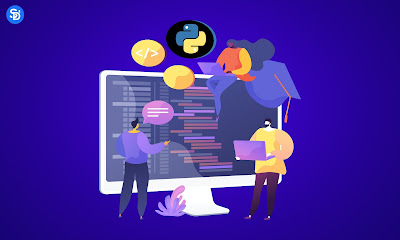Choosing Between Python and Shopify: Pros and Cons
In the realm of e-commerce, the decision between using Python development services and adopting the Shopify platform can significantly impact the success of your online business. Both options come with their unique set of advantages and drawbacks, and understanding these pros and cons is crucial to making an informed choice.
We recognize the pivotal role technology plays in shaping the e-commerce landscape. Our experienced team specializes in Python development services, tailoring solutions to suit your specific business requirements.
Python Development Services: Unveiling the Pros and Cons
Pros of Python Development for E-commerce:
Customization: Python allows for a high degree of customization, empowering you to craft a truly unique and visually appealing online storefront that aligns perfectly with your brand identity.
Scalability: As your e-commerce venture grows, your website needs to keep pace. Python's robust architecture ensures seamless scalability, enabling your website to handle increasing traffic and transactions with ease.
Integration: Python boasts extensive library support, simplifying integration with third-party services and APIs. This enables you to seamlessly incorporate essential features like payment gateways, shipping solutions, and inventory management.
SEO-Friendly: Python's clean code and efficient data handling make it an SEO-friendly choice. You can optimize your e-commerce website for search engines, enhancing its visibility to potential customers.
Cost-Effective: Python is open-source, which can help you reduce development costs. Furthermore, its large and active community ensures continuous support and updates.
Cons of Python Development for E-commerce:
Development Time: Building a customized e-commerce website with Python may take longer compared to launching a store on a dedicated platform like Shopify.
Technical Expertise: Python development may require a skilled development team or technical expertise. If you lack in-house expertise, you may need to hire developers.
Shopify: Exploring the Pros and Cons
Pros of Shopify for E-commerce:
Ease of Use: Shopify offers an intuitive and user-friendly interface, making it accessible for users with limited technical knowledge. You can quickly set up your online store and start selling.
Hosting and Security: Shopify handles hosting and security for you, alleviating the burden of these responsibilities. This ensures your website remains secure and performs optimally.
App Store: Shopify boasts a vast app store with a wide range of applications. You can easily add various functionalities to your online store, from inventory management to email marketing.
Payment Processing: Shopify supports multiple payment gateways, simplifying transactions for both you and your customers.
Maintenance and Updates: Shopify automatically takes care of maintenance and updates, ensuring that your store is always up-to-date and secure.
Cons of Shopify for E-commerce:
Customization Limitations: While Shopify provides a great deal of flexibility, there may be limitations in fully realizing a unique and highly customized online store.
Monthly Costs: Shopify involves monthly subscription fees, which can add up over time. Depending on your budget, these costs may be a factor.
Choosing the Right Solution
The decision between Python development services and Shopify hinges on your specific business needs, budget, technical expertise, and long-term goals. For a highly customized and scalable solution that aligns precisely with your brand, Python development services may be the better choice. However, if you seek a user-friendly and easily maintainable platform with a quicker setup time, Shopify could be ideal.
Conclusion
Whether you opt for Python or Shopify, partnering with a reputable Python Software Development Services ensures the successful development and maintenance of your e-commerce website. Contact us today to discuss your project and discover how we can help you achieve your e-commerce goals.




Comments
Post a Comment